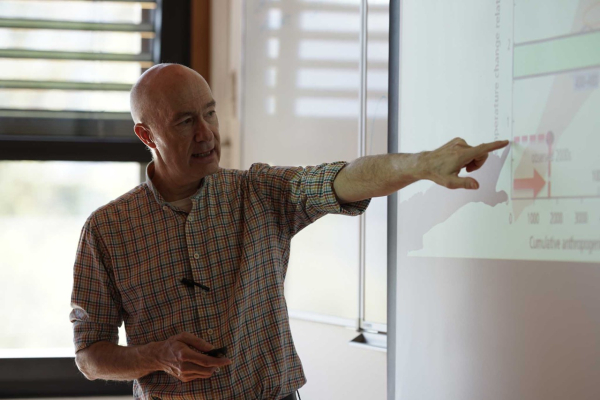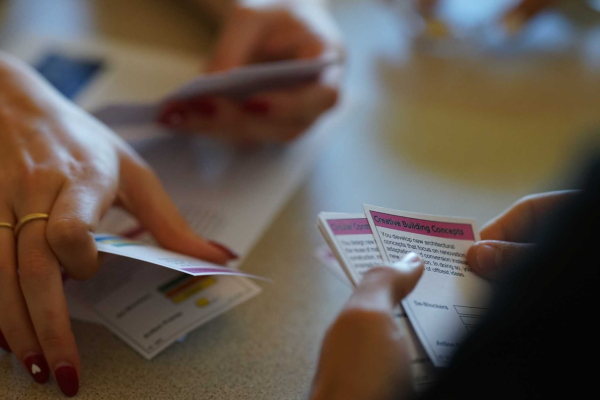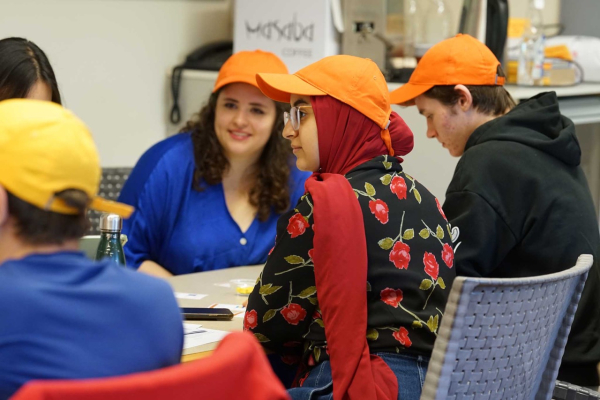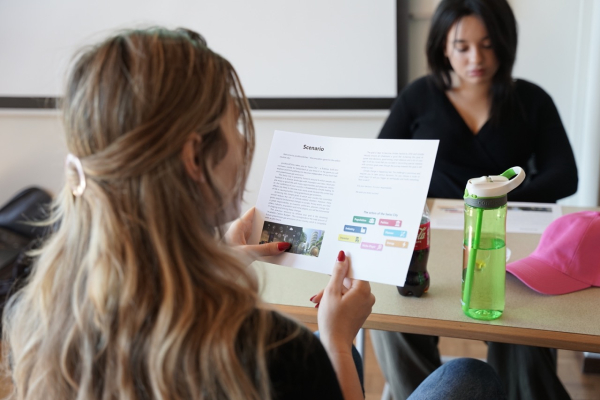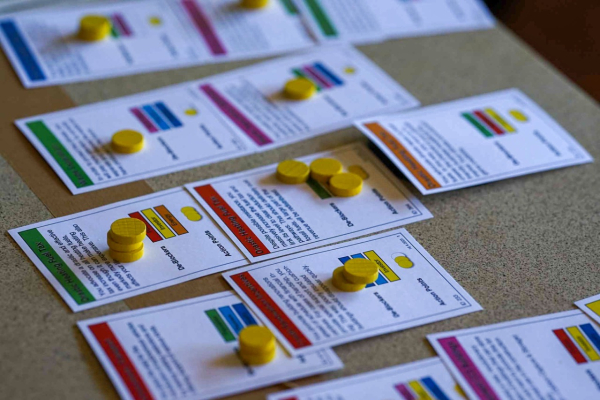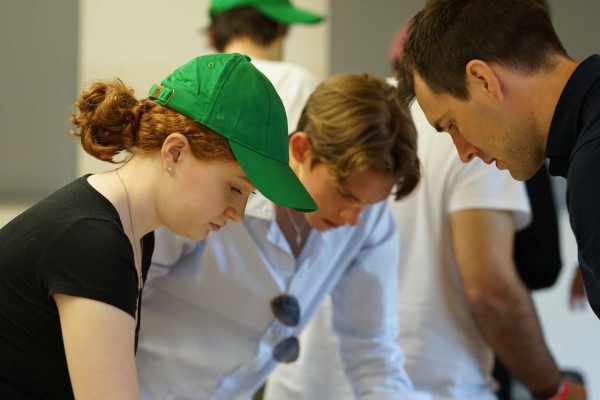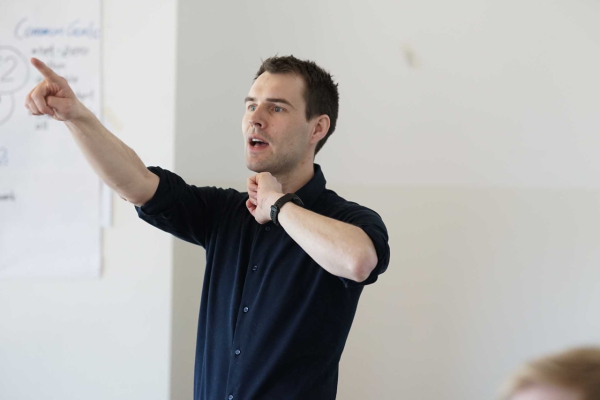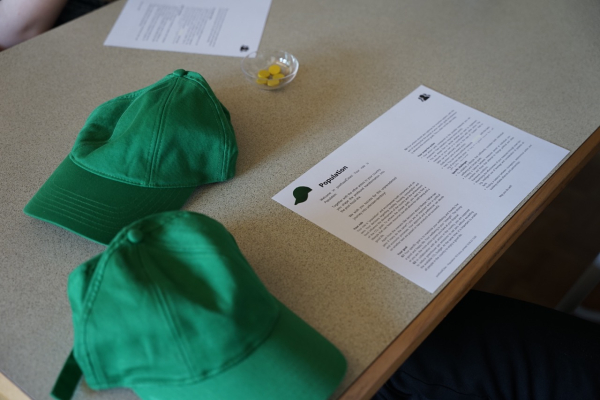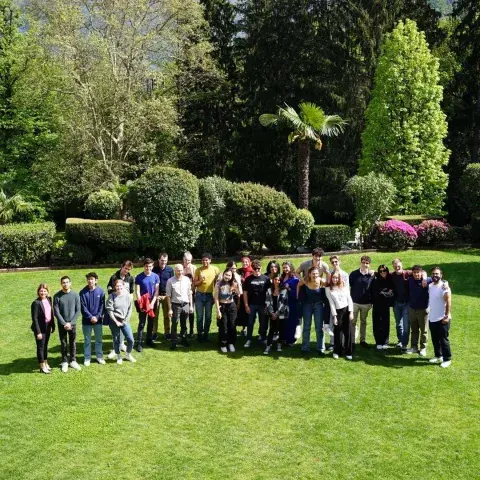
On Wednesday, April 26th, Franklin students came together to tackle the pressing challenge of climate change mitigation, engaging in a thrilling climate simulation game. Organized by the Division of Business and Economics (Professor Schultz and Professor Miniero) and facilitated by Dr. Markus Ulrich, the postfossilCities* simulation game provided students with a unique testing ground to explore what it takes to transition toward climate-neutral cities.
Students enrolled in MGT 534 Corporate Climate Action, BUS 235T Corporate Social Responsibility, and BUS136T Marketing in a Global Context formed seven groups, representing critical societal actors (e.g., politicians, investors, and industry) that were faced with the challenge to arrive at a carbon neutral city. Once the simulation began, action cards informed each group about potential CO2 mitigation strategies and their associated costs when being implemented in the central market table.
The pressure built quickly as there was scheming, bargaining, and making choices due to diverging group interests. Acting within the constraints of their roles, students had to cooperate in implementing CO2 reduction measures while remaining within the overall carbon budget. Students found that working alone or together with other groups could substantially shift the possibility of achieving their groups and society’s overall goals.
After a refreshing lunch break provided by the Food Services and a last round of bargaining, students reflected on the outcomes, alternative scenarios, and their roles in the simulation. A participant mentioned, “I observed a lot of communication, but also one-sided arguments.” Ghala Ashoor stated, “My favorite moment was after the first round had ended and the value was computed. Everyone was now starting to get serious” Others felt that as the simulation progressed, “tactics changed,” and collaborations increased -- the overall impression participants were left with was “coordination is key to successful operations.”
While it may have been just a simulation, the active engagement in future realities made the situations feel more tangible and relevant than one might expect. Participants experienced the urgency of climate action and learned about how the game scenarios may translate to their future professional and private lives. Post-simulation, students gained team working skills and problem-solving expertise that they will use as they continue their studies in hopes of making a real difference in shaping post-fossil cities.
*postfossilCities was developed as part of a Swiss National Science Foundation project (NRP73) led by Dr. Patrick Wager (Empa), Prof. Dr. Lorenz Hilty (University of Zurich), and Prof. Dr. Daniel Müller (Norwegian University of Science and Technology), together with the project partners Dr. Markus Ulrich (UCS Ulrich Creative Simulations GmbH) and Prof. Dr. Susanne Kytzia (Eastern Switzerland University of Applied Sciences (OST)).


